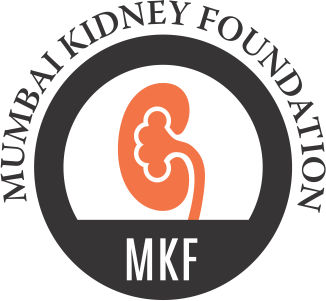Common Question
Frequently Asked Questions
Normally, there are two kidneys, located at upper and back side of the abdomen, one on either side of the spine under the lower ribs. They are a pair of bean shaped organs and in adults, each kidney is about the size of a closed fist. Kidneys purify the blood, regulate fluids, minerals and blood pressure, assist in the production of red blood cells and keep our bones healthy.
Anyone can develop chronic kidney disease. However people suffering from high blood pressure or diabetes or long term treatment with pain relievers are at a higher risk of developing kidney diseases. A family history of kidney diseases or congenital defects of urinary tracts also leads to greater risk of developing kidney diseases.
The doctor advises appropriate tests considering the illness of the patient. The routinely performed and most important screening tests for kidney disease are urine test, serum creatinine and ultrasound of kidney.
Kidney failure refers to the reduction in the ability of the kidney to filter and excrete waste products.
Kidney failure occurs only when both kidneys fail. Usually people do not have any problem if one kidney fails completely, and in such cases, value of blood urea and serum creatinine in blood tests are normal. But when both kidneys fail, waste products accumulate in the body, leading to a rise in blood urea and serum creatinine values. These raised values in the blood test suggest kidney failure.
In acute kidney failure, the kidney function is reduced or lost within a short period (over hours, days or weeks) due to various reasons. This type of kidney failure is temporary, and usually reversible. Gradual progressive and irreversible loss of kidney functions over several months to years is called chronic kidney disease or chronic kidney failure. This is a non- curable disease where kidney function reduces slowly and continuously and after a long period it may reduce to a stage where the kidney stops working almost completely. This advanced and life threatening stage of disease is called end stage kidney disease.
Gradual and permanent loss of kidney function is called chronic kidney disease (CKD). Raised value of serum creatinine in blood tests, and small and contracted kidneys on sonography are the hallmarks of chronic kidney disease
Symptoms of chronic kidney disease vary as per the severity of the disease. During the early phase, there may be no warning symptoms. But early clues may be increased urination at night, elevated blood pressure, urine abnormalities and high serum creatinine. However some patients with CKD may have normal serum creatinine. Common early symptoms of kidney diseases are swelling, loss of appetite, nausea, weakness, severe or uncontrolled hypertension and pallor. Some patients may not have symptoms and their problem may go undetected until the kidneys are severely damaged. Advanced stage or end stage kidney failure patients are usually symptomatic. Common problems at this advanced stage are severe nausea, vomiting, weakness, breathlessness, pallor, confusion and convulsions.
The two most important causes of chronic kidney disease are diabetes and high blood pressure. Other important causes are :
- Glomerulonephritis
- Polycystic kidney disease: An inherited disease causing cysts in the kidney.
- Ageing of the kidneys
- Renal artery stenosis: Narrowing of the blood vessels of the kidney.
- Blockages to the flow of urine
Drugs causing kidney damage - Recurrent kidney infection
Supplementing iron and vitamins is the first step to treat anemia due to CKD. Severe anemia, or anemia not responding to drug therapy, needs injections of synthetic erythropoietin. Erythropoietin injection is safe, effective and the most preferred method of treating anemia due to CKD.




